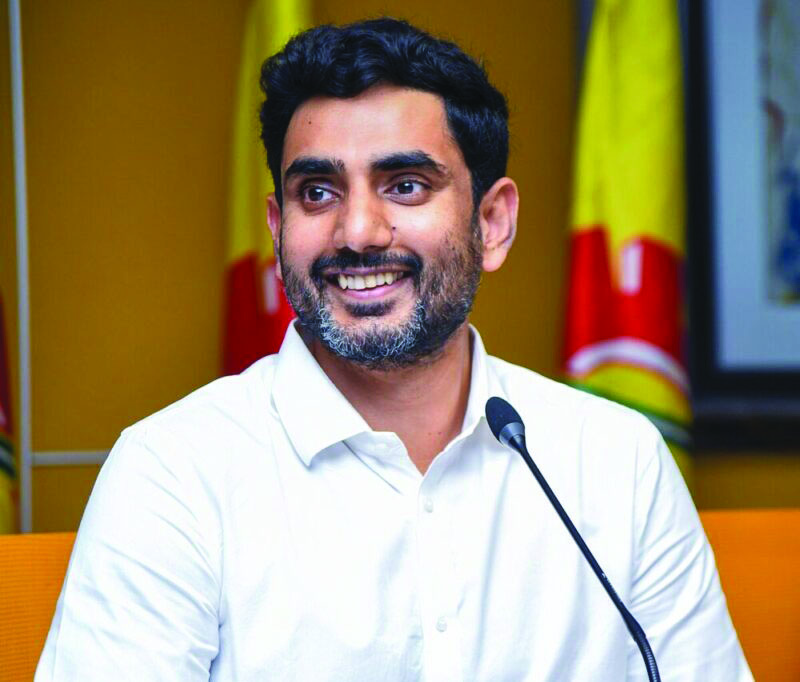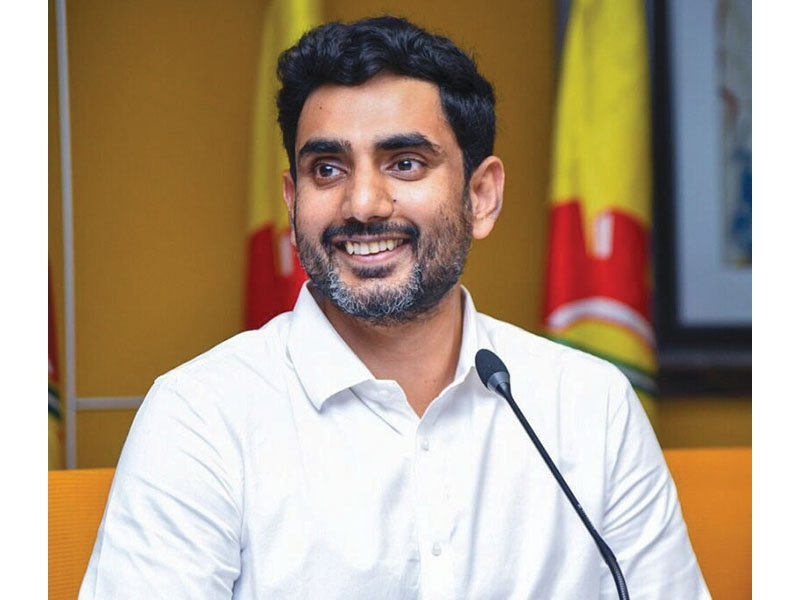No products in the cart.
Andhra Pradesh: Great LEAP forward
– Priyanka Edupuganti (Hyderabad)

Nara Lokesh: “cusp of a new revolution”
Since june 2024 when the Telugu Desam Party (TDP) led by four-term chief minister N. Chandrababu Naidu was returned to power in Andhra Pradesh (pop. 53 million) with a sweeping majority, securing 135 out of 175 legislative assembly seats, the party has prioritised education as a cornerstone of its development agenda.
After it was sworn in 16 months ago, the TDP government has increased the state’s Budget 2025-26 outlay for education by 6.34 percent to Rs.32,000 crore, of which a preponderant Rs.29,909 crore is allocated to the school education department. Moreover on August 20-21, the BJP/NDA government at the Centre (with whom the TDP is in alliance) allocated Rs.432 crore under the Centre’s Samagra Shiksha (primary-secondary schools development) programme to Andhra Pradesh.
On October 25, minister for human resource development Nara Lokesh, a Cargenie Mellon and Stanford universities alum and Chandrababu Naidu’s son and heir apparent, launched LEAP (Learning Excellence in Andhra Pradesh) to revolutionise K-12 education statewide through technology, innovation, and inclusion.
Under the LEAP framework, the state government intends to overhaul and re-build AP’s school education system on five pillars — curriculum reform, teacher training, infrastructure improvement, digital learning, and assessments. According to Lokesh, LEAP is closely aligned with the National Education Policy (NEP) 2020 and introduces AI-driven evaluation tools, play-based learning in early years, and digital content modules designed to nurture children’s creativity, communication, and problem-solving skills.
“Andhra Pradesh is pioneering a new era of education through LEAP by focusing on foundational learning, global best practices, and inclusive growth. We are at the cusp of a new revolution, and Andhra Pradesh is at the right point to take that leap,” he said, addressing an International Education Round Table in Melbourne, Australia. Meanwhile, the Andhra Pradesh State Council of Higher Education (APSCHE) has also introduced an integrated Quantum-AI curriculum for universities to ensure that the shift toward digital education continues beyond school years.
Moreover to roll out LEAP smoothly, the TDP government is setting up a comprehensive teacher training ecosystem. Over 200,000 teachers will receive professional development education via blended modules, micro-certifications, and leadership workshops for headmasters. The plan also introduces performance-linked appraisals, with teacher growth tied to students learning outcomes. “Teacher development and support systems matter as much as training. The vision is sound, but capacity-building at this scale must be steady, not rushed,” advises Prof. Anil Prasad, education policy analyst at the Centre for Governance Studies, Tirupati.
However, the reformist TDP government’s ambitious spending programs are making economists nervous. Andhra Pradesh has a debt to GSDP ratio of over 32 percent and a fiscal deficit of 4.9 percent of GSDP. Given the scale of capital expenditure required for construction of a brand new admin capital city in Amravati (Rs.64,000 crore), the massive Polavaram water harnessing and irrigation project (Rs.56,000 crore) and supportive infrastructure for the new Adani-Google $15 billion AI data centre (Rs.132,000 crore) in Visakhapatnam, and other several high-cost projects, some analysts doubt the state can afford to implement its ambitious education reforms and welfare programs simultaneously. “Ambition without fiscal discipline can derail even the best policy design. The LEAP plan must be carefully phased and evaluated,” warns economist Dr. S. Raghav, former researcher at National Institute of Public Finance and Policy (NIPFP).
However during his three terms as chief minister of AP, Naidu built a formidable reputation as a resource mobiliser and finance minister. Indeed Naidu is widely credited with having transformed the once sleepy city of Hyderabad, the admin capital of undivided AP into an ICT (information communication technologies) hub rivalling Bangalore. But unfortunately for him following a long agitation, Telangana (pop. 39.6 million) was carved out of Andhra Pradesh into a new state and after serving as the capital of both states for 10 years Hyderabad was finally ceded as the capital of Telangana on June 2, 2014.
Now back in the saddle in Andhra after an interregnum of five years, Naidu is all set to replicate the Hyderabad experience with Amravati and transform AP — gifted with a highly entrepreneurial population — into India’s most well-educated and prosperous state.
Although opposition parties have criticised LEAP, it has revived the spirit of teachers in Andhra Pradesh. Within the educators community there’s unanimity that LEAP provides a clear roadmap for major reform of the state’s education system.















Add comment